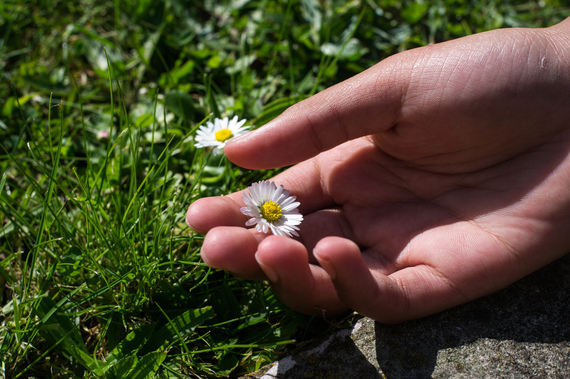A new year always calls for appropriate self-examination and introspection. It allows us to discern what additional self-kindness we can embrace to improve our well-being in the coming year. It turns out that a helpful resolution would also be to extend kindness to others because it actually can benefit your health.
A 2011 study by Michael Norton and colleagues at Harvard Business School found that giving money to someone else lifted the giver's happiness more than spending it on themselves. The researchers found that because prosocial spending increased happiness, it also encouraged more spending, which is a beneficial consequence for all.
Kindness feels good, benefiting both giver and receiver.
The health rewards of altruism are not reserved, however, for those with money to give away. Those who survive tragic losses, including suffering from devastating illness, have benefited by extending kindness to others. In his book Why Good Things Happen to Good People, Stephen Post reports that giving to others has been shown to increase health benefits in people with chronic illness.
In remembrance of the 26 individuals who died in the school shooting at Sandy Hook Elementary in Newtown, Connecticut, a former student, Ashley Petersen, organized an annual "26 days of Kindness." On each of the days, one of the victims is remembered. She encourages all participating to perform a charitable act in honor of that person. Paying deep homage to the 26 victims, she says, is a way to extend ongoing healing to the grieving survivors and, in addition, promote peace and kindness to a hurting world. Kindness feels good, benefiting both giver and receiver.
A 2006 study published in the Proceedings of the National Academy of Science found that when people give to charities, the brain is activated in regions associated with pleasure and social connection, creating a "warm glow" effect. Scientists believe that altruistic behavior releases endorphins in the brain, producing a euphoric feeling known as a "helper's high." (It has been dubbed the G-rated version of a morphine high.)
In another study, Rachel Piferi of Johns Hopkins University and Kathleen Lawler of the University of Tennessee found that people who provided social support to others lowered their blood pressure. These giving participants additionally reported "greater self-esteem, less depression and less stress."
It's lovely when scientific studies back up what we have always known in our heart of hearts. "Kindness IS its own reward." We all have experienced the immediate benefits we receive when we offer kindness to another -- enriching feelings of connection and emotional intimacy. The giving and receiving of kindness promotes trust, encourages cooperation and strengthens our ties to one another. It is central to achieving mental, emotional and social well-being.
It's actually a privilege to care about each other and to proactively extend that caring as often as possible. Every time we do, something in us grows and comes alive. Kindness heals our world, one act of giving at a time. What acts of giving kindness have benefited you?
As a giver and/or receiver, how has an act of giving kindness made you feel?
This article was originally published on Ornish Living.
